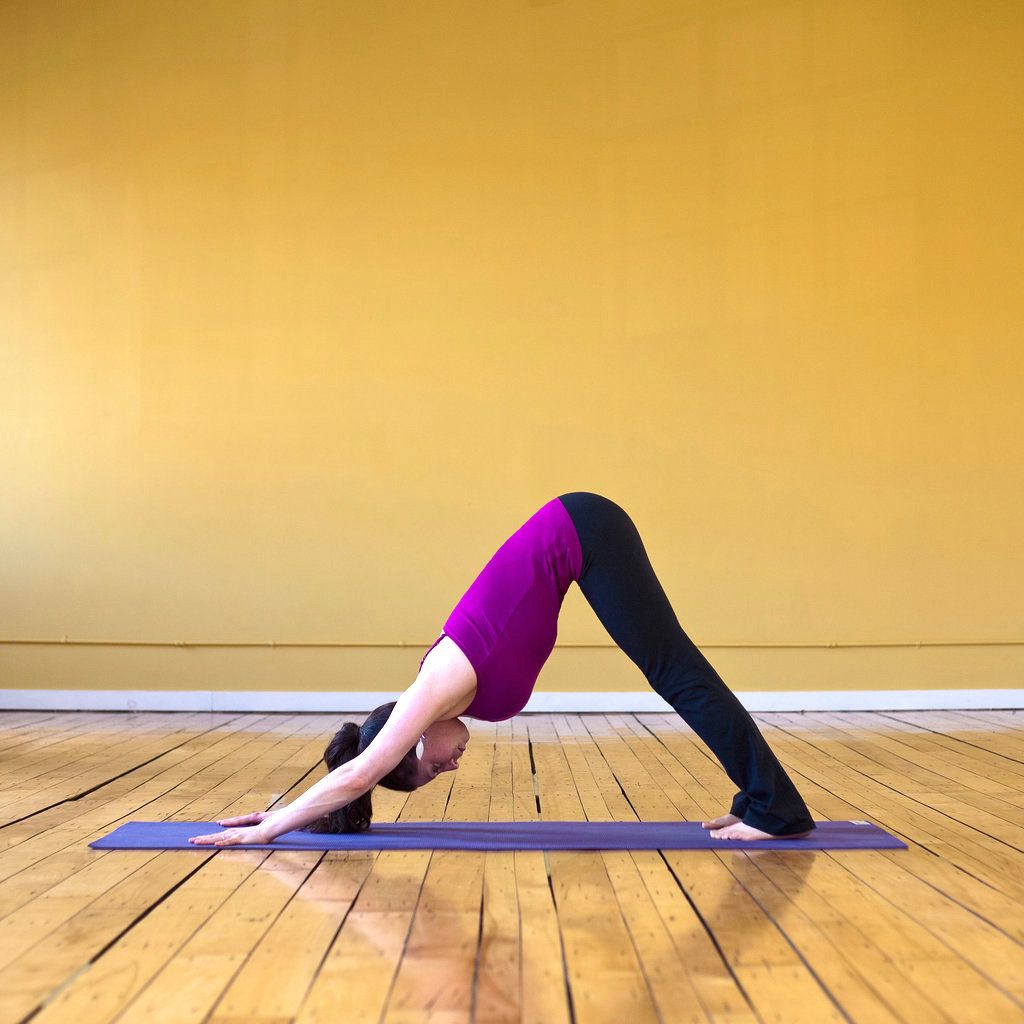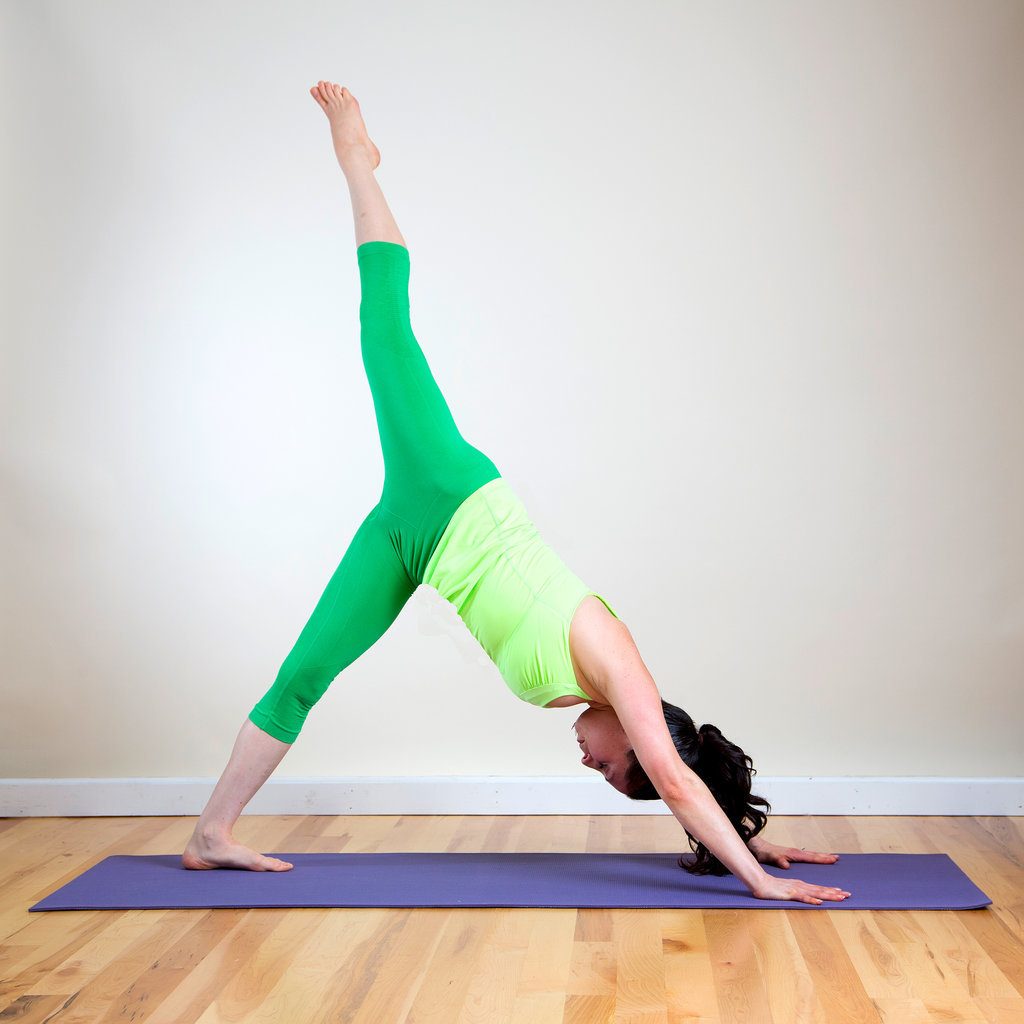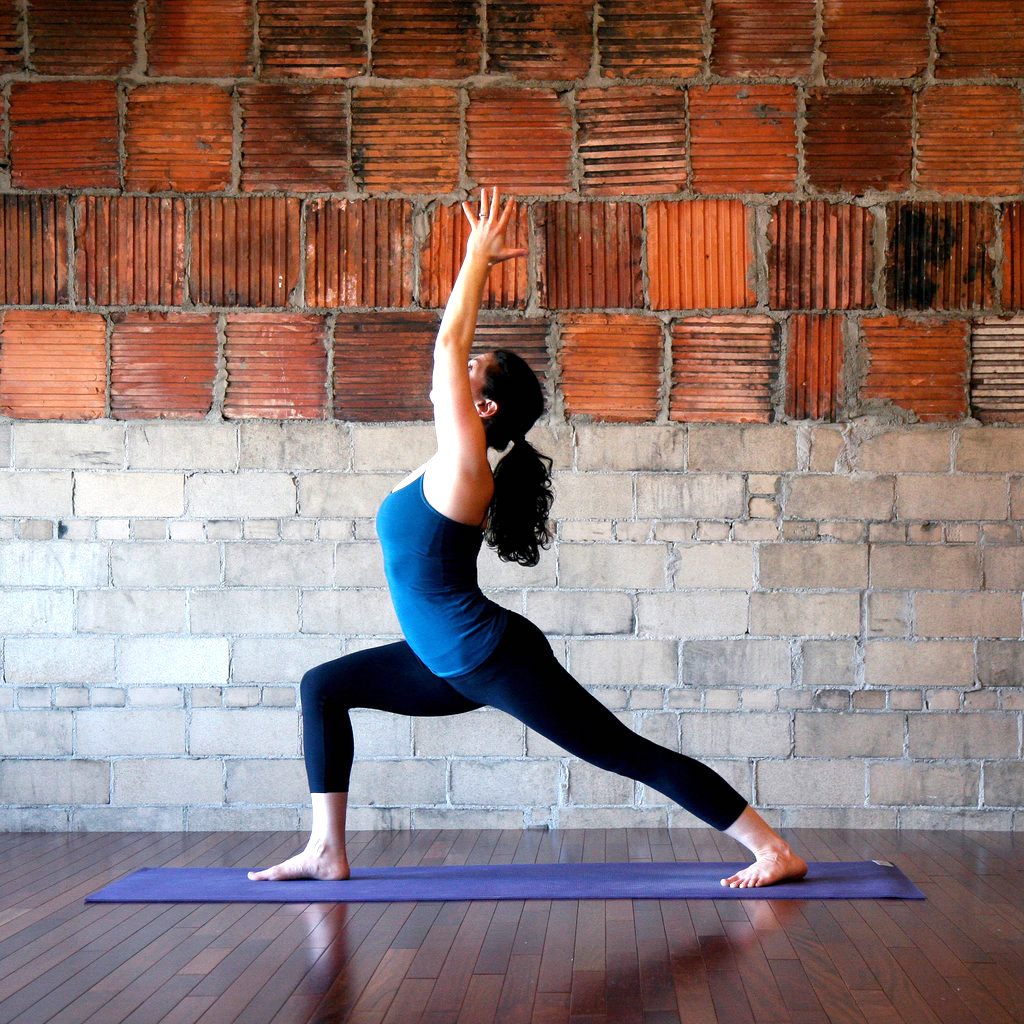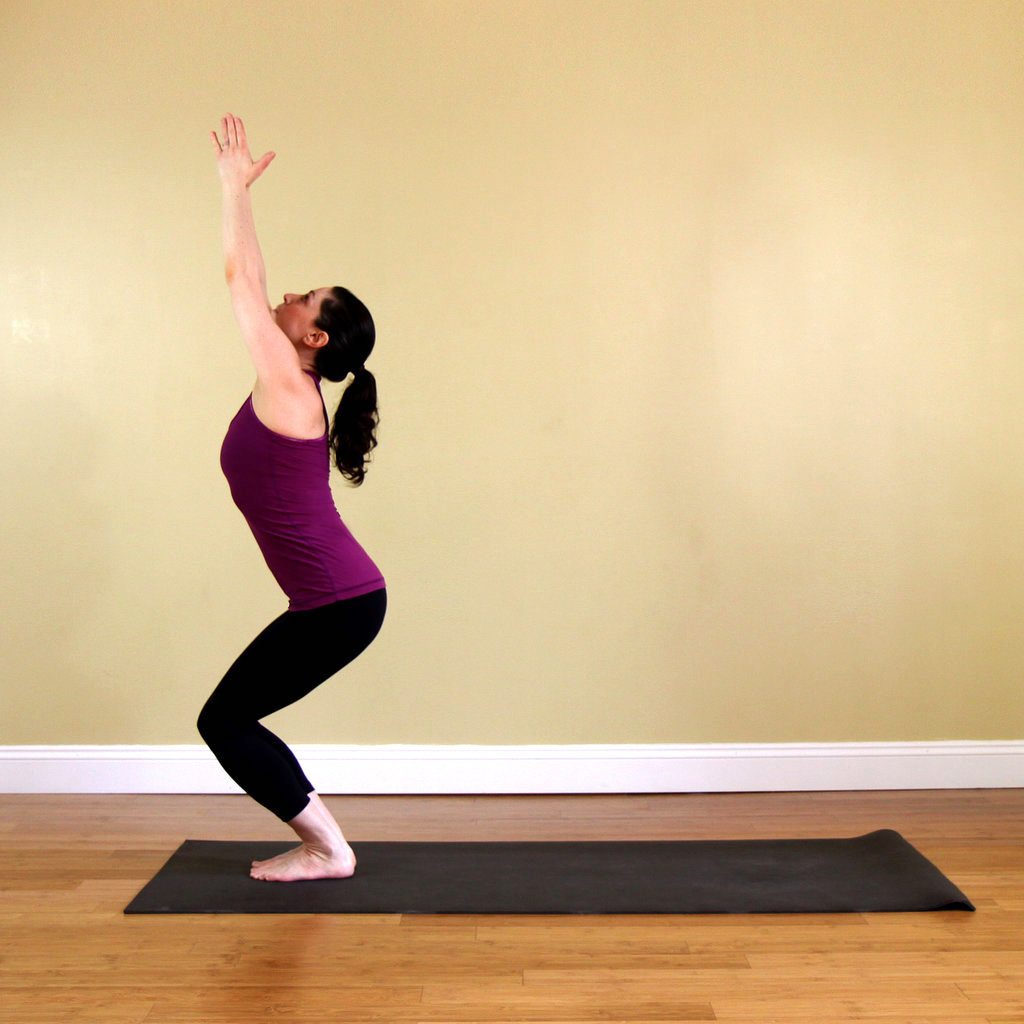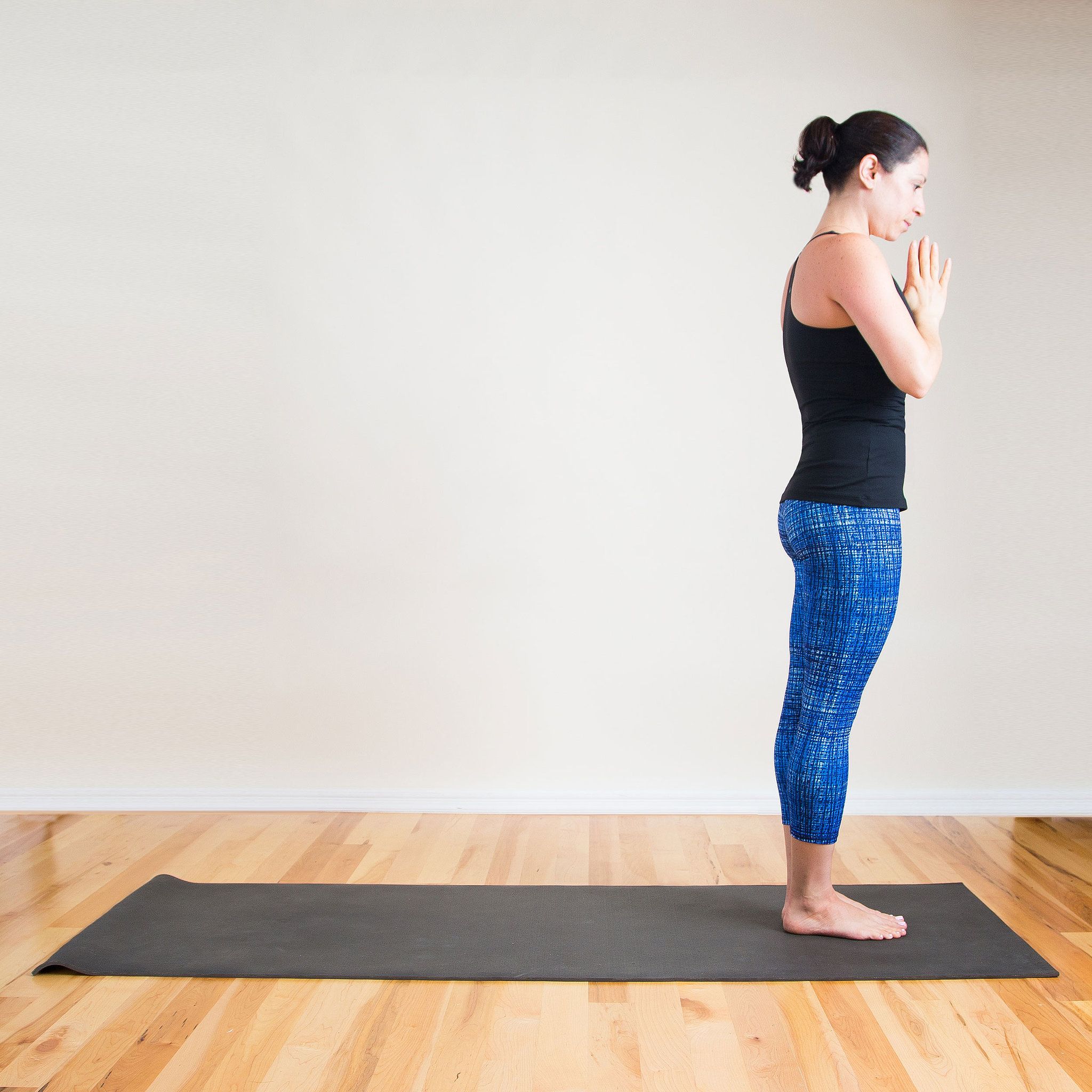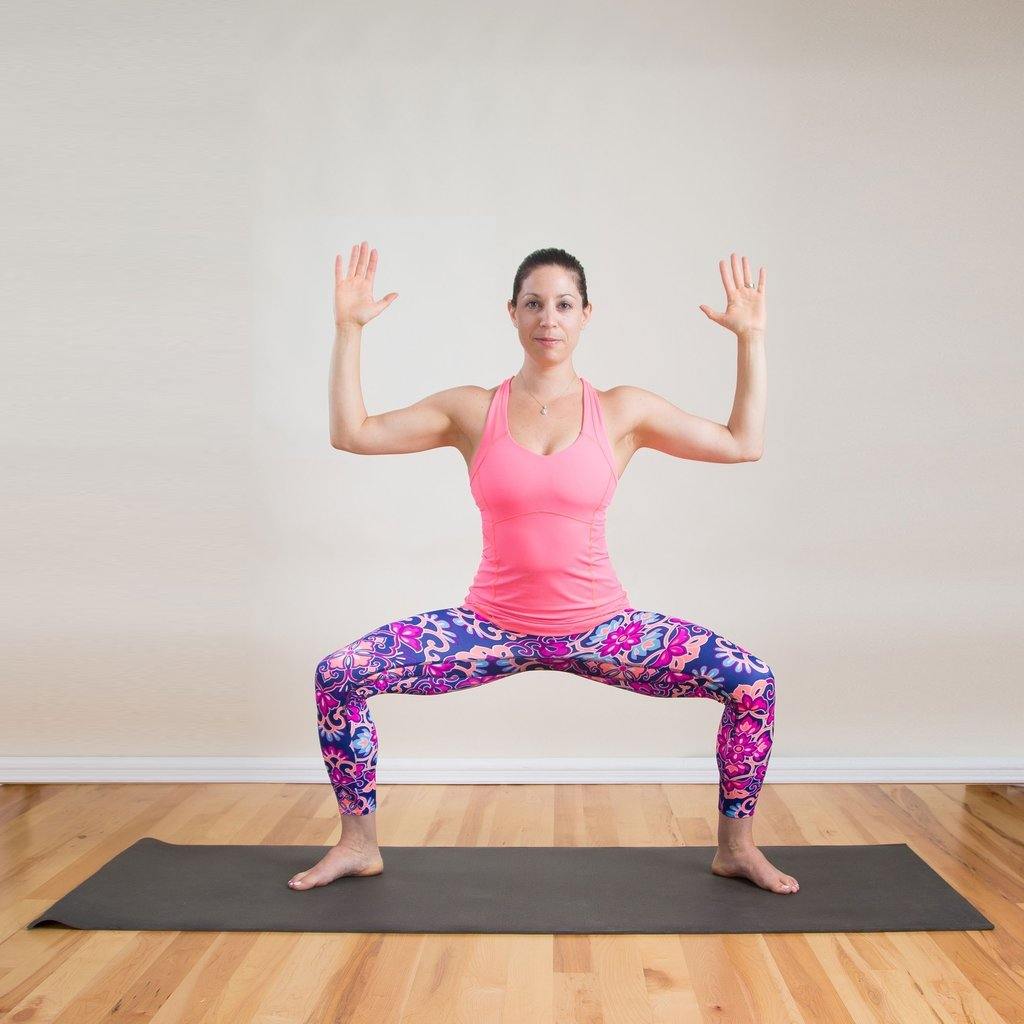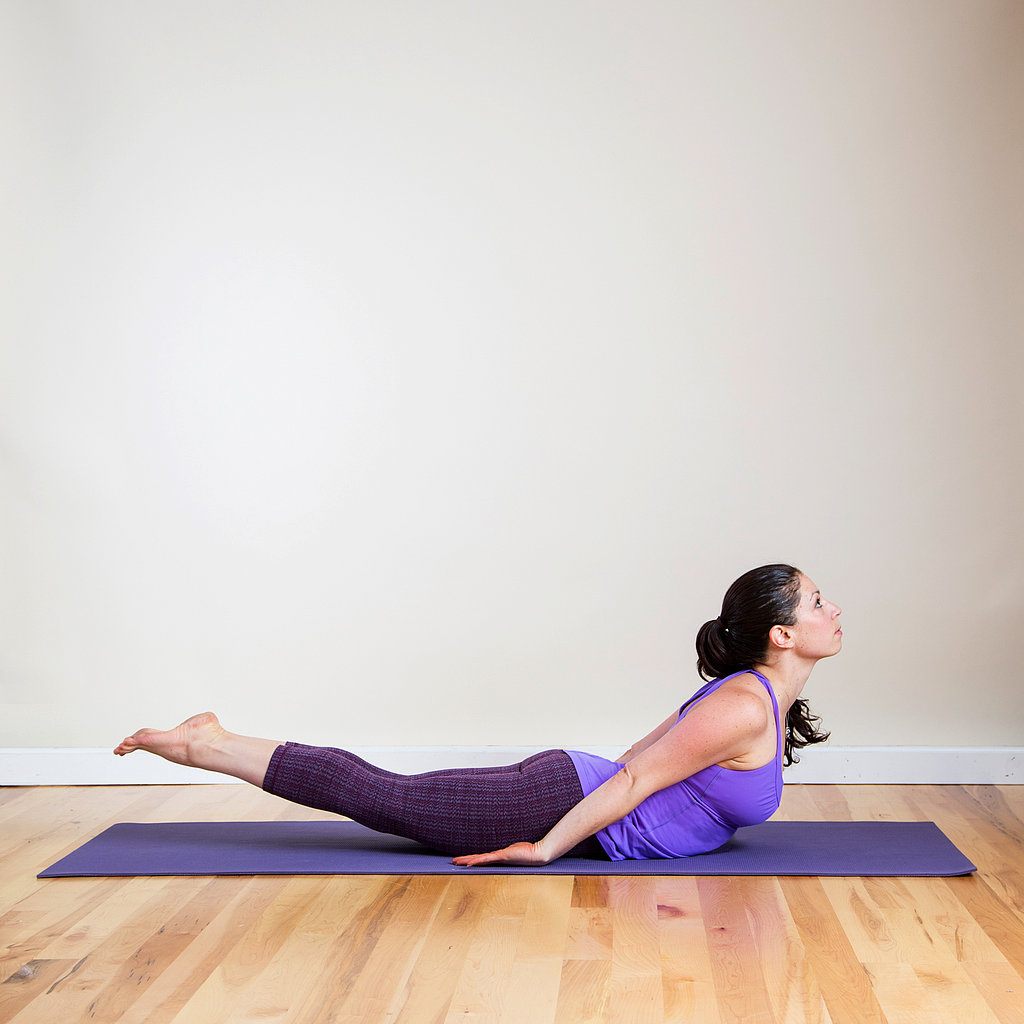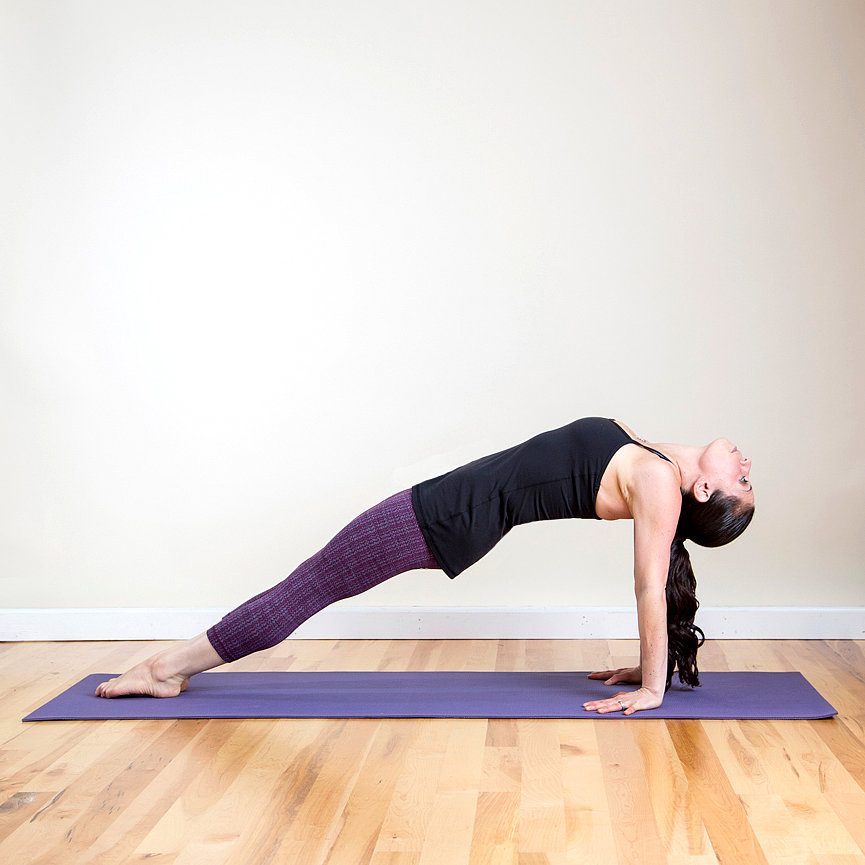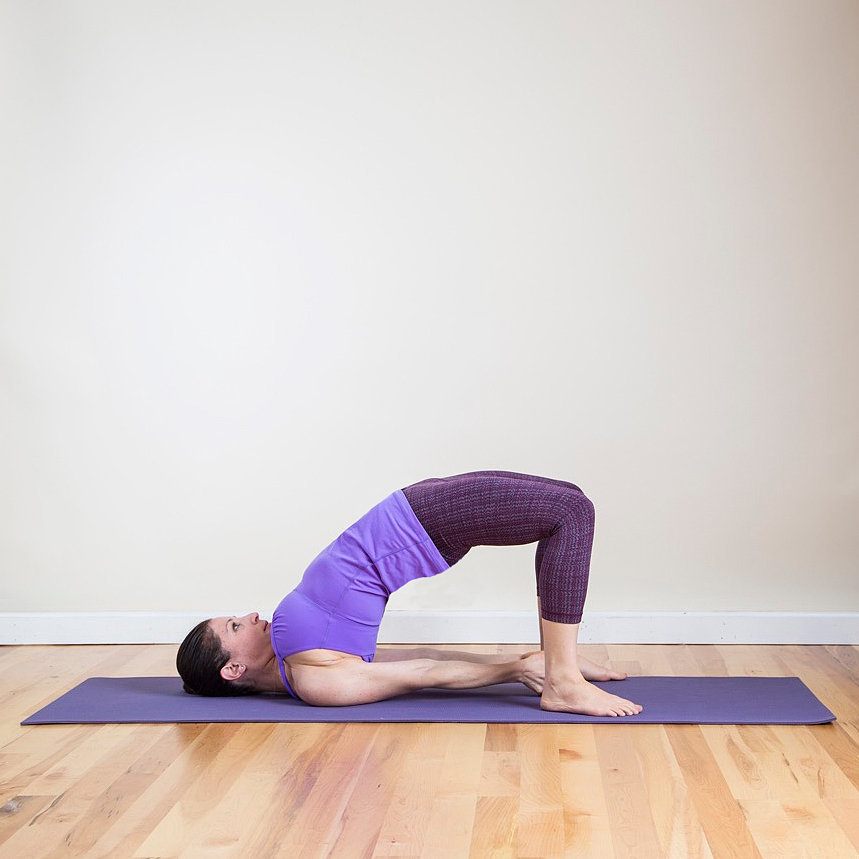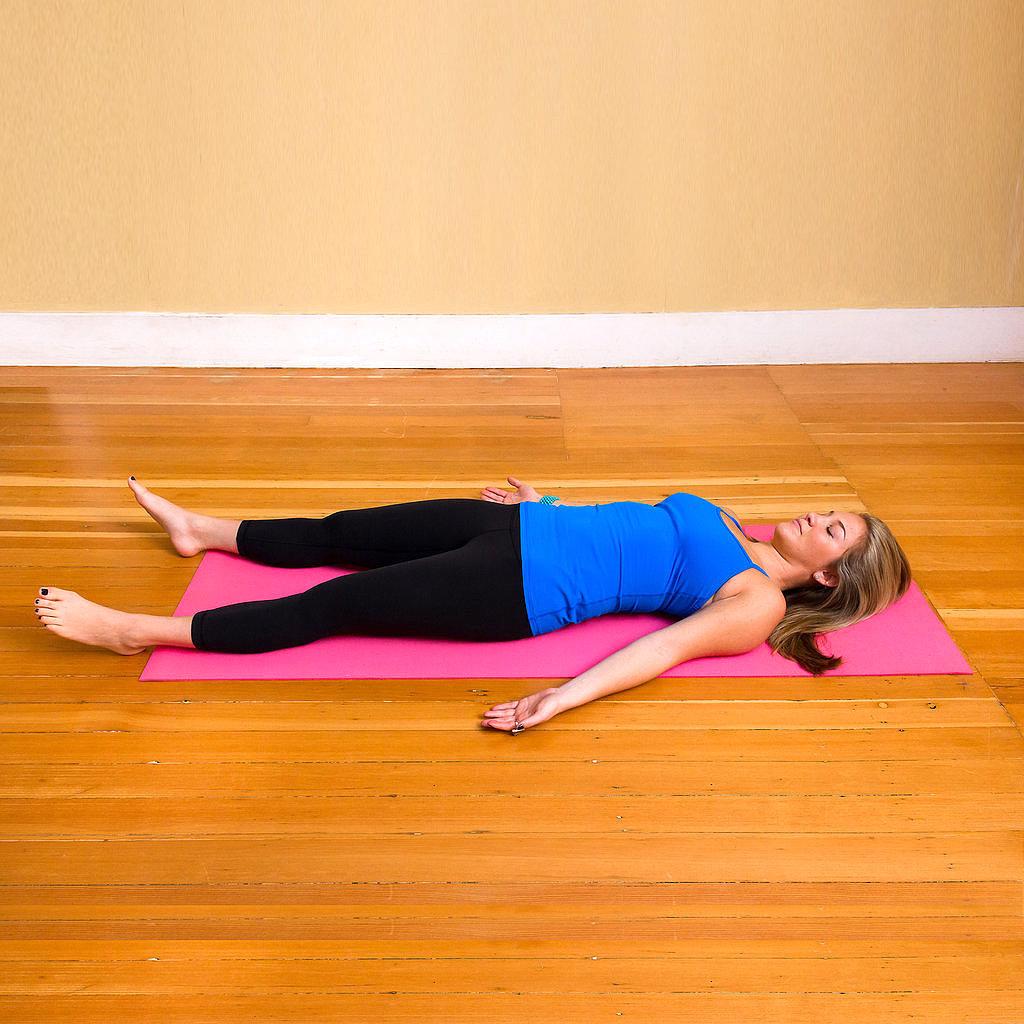- Downward Dog
Begin on your hands and knees. Your wrists should be underneath your shoulders, and your knees should be underneath your hips. Inhale as you tuck your toes under your heels. Then exhale to lift your hips, coming into an upside-down “V” shape called Downward Facing Dog. Spread your fingers wide, and create a straight line between your middle fingers and elbows. Work on straightening your legs and lowering your heels toward the ground. Relax your head between your arms, and direct your gaze through your legs or up toward your belly button. Hold for five breaths.
- Three-Legged Downward Dog
From Downward Facing Dog, step both feet together so your big toes are touching. Shift your weight onto your hands and your left foot equally, and raise your right leg into the air. Try to keep your shoulders parallel with the ground, and gaze at your left thigh or up toward your belly to help you stay balanced. Stay here for five breaths, then lower your right leg down. Perform Three-Legged Downward Dog on the other side.
- Warrior 1
From Three-Legged Dog, come back down to Downward Facing Dog. Step your right foot forward between your hands. Turn your left heel in, press into your feet, and lift your torso up. Lift your arms up, and press your palms together. Draw your shoulder blades down toward your hips, and gaze up at your hands. Stay here for five breaths. Then come back to Downward Dog, and move through Warrior 1 with your left foot forward.
- Warrior 3
From Warrior 1 with your left knee forward, lower your torso and lift your right leg, bringing your body parallel with the ground. Extend your hands out in front of you, pressing your palms together firmly. If it bothers your shoulders to press your hands together, separate your arms so they’re shoulder-width apart. If extending your arms creates pain or pressure in your lower back, rest your hands on your hips. Engage your abs, holding this position for five deep breaths. Then lower your left leg, returning to Warrior 1. Release your hands to the mat, and come into Downward Dog. Then move through Warrior 3 with the other leg, move through Warrior 1, and come back to Downward Dog.
- Fierce
After Downward Facing Dog, jump or step toward the top of your mat. Slowly roll up, and stand with your feet together in Mountain Pose. Bend your knees and lower your hips as you raise your arms overhead. Focus on sitting back onto your heels. Tuck your tailbone in, and engage your abs, keeping your spine straight. Relax the shoulders as you gaze up toward the ceiling. Stay like this for five breaths, and then stand up into Mountain Pose.
- Mountain Pose
Before you begin moving, create your intention. Bring your awareness inward to your breath and focus your energy on a person, an aspiration, a dream, a hope, a purpose, or something you wish to change in the world or in your life. Try to let go of any thoughts about your day: what you forgot to do, who you need to call, or a disagreement you may have had, then connect with your body in the present moment. After all this is what yoga is all about.
- Goddness
From Mountain Pose, step open to the right, opening your legs about three feet apart. Turn your heels in. Bend your knees until your thighs are parallel to the ground. Your knees should be directly over your ankles, so adjust your feet if you need to. Lift your arms up, bending your elbows so they are at 90-degree angles, and open your palms away from you. Hold here for five deep breaths.
- Wide Squat
Step in your feet so they’re slightly wider than your hips. Bend your knees, and lower your hips toward the ground. Bring your palms together at your heart center, and firmly press your elbows against the inside of your knees. This will help to open your hips even farther. Shift weight onto your heels, and lengthen the crown of your head toward the ceiling. Hold the pose for five deep breaths.
- Locust Pose
From Wide Squat, place your hands at the top of your mat and step back into plank. Slowly lower to the ground, and lie flat on your belly with your legs together. Place your arms by your sides so your palms are facing up. As you inhale, lift your legs, head, and upper body off the floor. Your hands remain on the floor for support. As you breathe, extend the crown of your head away from your toes, lengthening as much as you can through your spine. Stay for five breaths, and then release back to the mat.
- Intense East
From Locust Pose, roll over to lie flat on your back. Sit your bottom on the floor with your legs extended straight out in front of you. Place your palms behind your hips about six to eight inches away, with your fingers pointing toward your toes. As you inhale, press into your hands and feet firmly, lifting your hips into the air. Raise them as high as you can so your spine is in a long line. Slowly release your head back, looking behind you and opening through your throat. Stay here for five deep breaths, then lower your hips to the floor.
- Bridge
From Intense East, lie flat on your back with your arms along the sides of your body with your palms facing down. Bend your knees, placing your heels as close as you can to your bum. With your palms and feet pressing firmly into the ground, lift your hips up. Keep your palms on the mat, or clasp your hands together below your pelvis, extending through your arms. Or you can also bend your elbows and rest your hands on your lower back. If your feet are close enough, you can also hold your ankles. Stay here for five deep breaths, lifting your hips up as high as you can.
- Savasana
After you’ve completed Bridge Pose, lie on your back and close your eyes. In order to relax and open your body fully, extend your arms a few inches away from the body, with the palms facing up. Put about 15 to 20 inches between your heels, allowing your feet to fall open with the toes pointing out. Actively shrug your shoulder blades down toward your hips. Lengthen through the spine as much as possible, relaxing your lower back toward the floor. After you’ve found a comfortable position, stay here for as long as you want, around 10 minutes or more, if your schedule allows for it. If you’re short on time, remain in Savasana at least until your heart rate slows down and your breath returns to its natural soothing rhythm.
